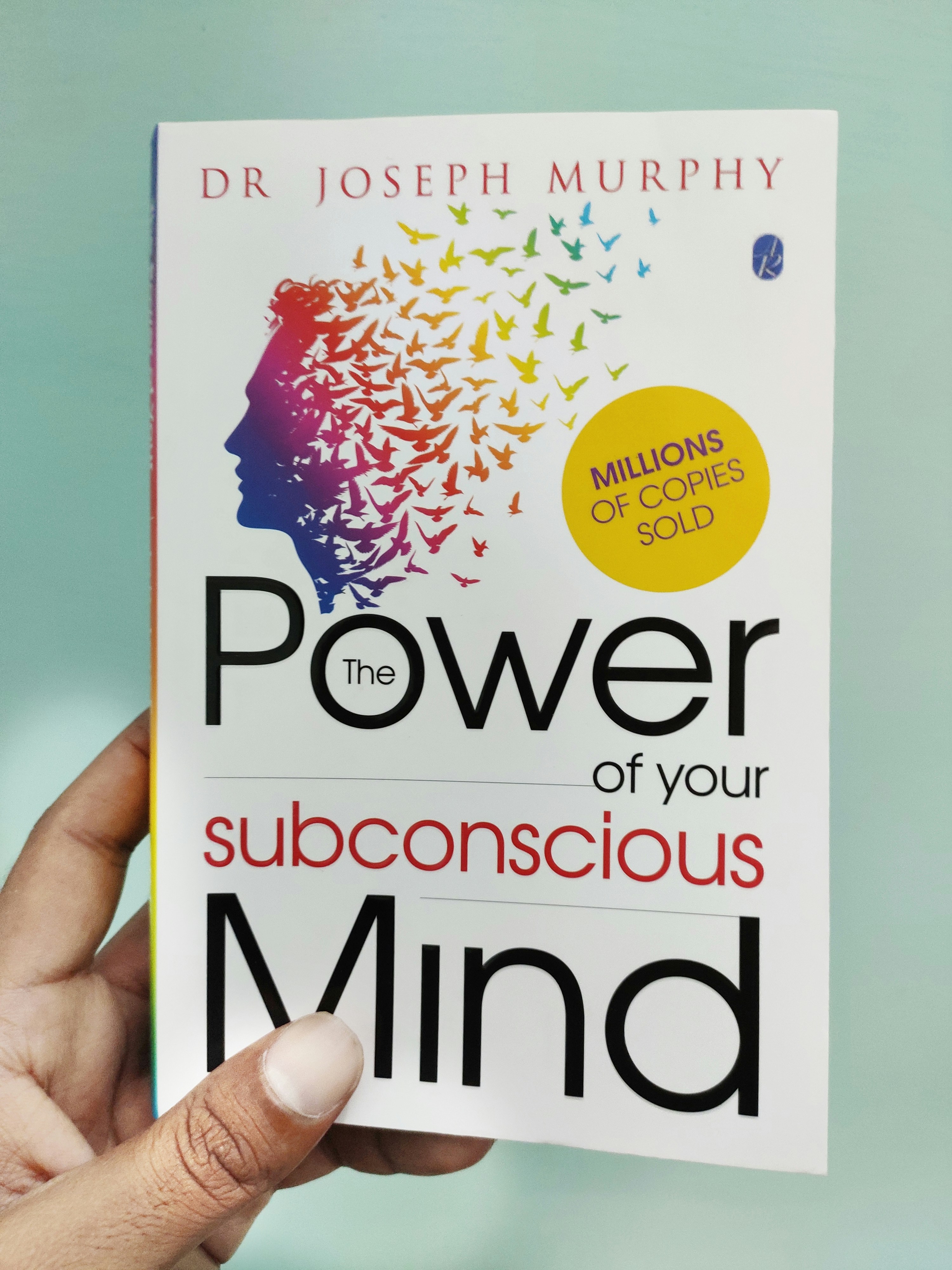
Understanding the Mind and Intellect
The mind and intellect are often intertwined concepts, yet they serve distinct roles in our cognitive processes. The mind encompasses a broad spectrum of mental activities, including thoughts, emotions, perceptions, and consciousness. It acts as the platform upon which our experiences and interpretations of the world are built. Intellect, on the other hand, refers specifically to the capability to think logically, reason, and solve problems. It is primarily associated with cognitive functions such as analytical thinking and comprehension.
Central to the workings of the mind is the interplay between thoughts and emotions. Thoughts can be viewed as the mental representations or symbols that reflect our understanding of the environment. Emotions, conversely, are responses derived from our thoughts and experiences, often influencing our behaviors and decisions. Psychological theories, such as cognitive behavioral theory, elucidate how our thoughts can shape our emotions and vice versa, thus illuminating the mechanisms through which we can exert control over our mental faculty.
The distinction between the mind and intellect is of paramount importance in fostering individual growth and development. By understanding this separation, individuals can better harness their intellect to analyze and reinterpret emotional responses, allowing for more balanced decision-making and behavioral strategies. For instance, engaging in critical thinking exercises not only sharpens intellect but also promotes emotional intelligence, which further enhances personal insight and self-awareness.
Moreover, various psychological frameworks illustrate these dynamics, including the dual-process theory, which posits that our thinking operates through both intuitive and deliberative processes. Recognizing the strengths and limitations of each can empower individuals to engage their intellect more effectively. By mastering these facets of our cognitive landscape, we are better positioned to navigate life’s complexities and achieve mental control.
The Importance of Mind Control
The practice of mind control plays a pivotal role in personal development, acting as a cornerstone for improved mental well-being and self-awareness. Mastering the ability to control one’s mind encompasses regulating thoughts and emotions, which is essential for achieving greater focus in daily activities. An individual who possesses this skill can direct their attention towards meaningful tasks, enhancing productivity and the quality of work produced. Furthermore, improved focus diminishes distractions and fosters a more serene mental state conducive to goal achievement.
In addition to facilitating focus, possessing effective mind control enhances decision-making capabilities. The ability to regulate thoughts allows individuals to approach decisions more logically, reducing the occurrence of rash, impulsive behaviors. This increased clarity in thought processes empowers individuals to analyze situations thoroughly, weigh the pros and cons, and arrive at more informed conclusions. Consequently, this mindset fosters a greater degree of confidence in the decisions made, ultimately leading to a more fulfilling life experience.
Creativity, often seen as a product of an unencumbered mind, can also flourish through the development of mind control techniques. Individuals who learn to manage their thought patterns and emotional responses can filter distractions and tap into deeper levels of imagination. This practice allows for innovative thinking and the generation of novel ideas, which can be particularly beneficial in creative fields or problem-solving situations.
Conversely, a lack of mental control can yield negative repercussions, including heightened anxiety, stress, and impulsive actions that may lead to regret. Without effective management of thoughts and emotions, individuals may find themselves overwhelmed, unable to respond to challenges in thoughtful and constructive ways. Therefore, fostering the ability to control the mind is not only beneficial for enhancing focus and creativity but also essential for maintaining emotional balance and resilience in the face of life’s challenges.
Techniques for Mind Control
Gaining control over one’s mind is a valuable skill that can lead to enhanced focus, improved emotional regulation, and greater overall well-being. Various techniques can be strategically employed to achieve this mastery, including mindfulness meditation, cognitive restructuring, and affirmations.
Mindfulness meditation is one of the most effective methods for controlling the mind. It involves dedicating specific time to sit quietly and focus on the present moment, observing thoughts and feelings without judgment. To practice mindfulness meditation, find a quiet space, sit comfortably, and close your eyes. Begin by concentrating on your breath, feeling the air enter and leave your body. If distractions arise, gently redirect your attention back to your breath. Regular practice can lead to reduced anxiety, enhanced focus, and deeper emotional insight.
Another powerful technique is cognitive restructuring, which focuses on identifying and challenging negative thought patterns. This method requires individual recognition of irrational beliefs and actively replacing them with more rational, positive thoughts. Start by keeping a journal of negative thoughts and analyzing their validity. Question the evidence for those thoughts, and consciously craft an alternative thought that reflects a more balanced perspective. This self-reflective practice can significantly boost mental resilience and self-esteem.
A third useful technique is the use of affirmations. These are positive statements that individuals repeat to themselves to foster a more constructive mindset. To implement affirmations effectively, select statements that resonate personally and address specific goals or challenges. For instance, repeating phrases like “I am capable of achieving my goals” can reinforce confidence and promote a proactive mental attitude. The repetition of affirmations can reshape cognitive patterns and reinforce self-belief over time.
In conclusion, incorporating mindfulness meditation, cognitive restructuring, and affirmations into daily routines can substantially enhance one’s ability to control their mind and intellect. Each technique offers unique benefits that cater to various aspects of mental health and emotional well-being, ultimately fostering a more centered and resilient mindset.
Developing Emotional Intelligence
Emotional intelligence (EI) is a vital competency that influences our ability to control both mind and intellect. It encompasses various components that collectively enhance our interactions with ourselves and others. The first component is self-awareness, which allows individuals to recognize their emotions and the effects they have on their thoughts and actions. By fostering self-awareness, one can better understand how their emotional state influences their decision-making. This foundational skill is critical as it lays the groundwork for more complex emotional competencies.
Another crucial aspect of emotional intelligence is self-regulation. This entails the ability to manage one’s emotions and impulses effectively, enabling individuals to respond to situations thoughtfully rather than reactively. Self-regulation helps in maintaining control over thoughts and fostering a sense of calm, even in challenging environments. Together with self-awareness, self-regulation significantly enhances one’s capacity to navigate emotional landscapes, leading to a more controlled mental state.
Motivation also plays a prominent role in emotional intelligence. It refers to the drive to pursue goals for personal reasons rather than external rewards. A high level of intrinsic motivation can transform negative thoughts into positive action, fostering resilience and perseverance in the face of obstacles. Additionally, empathy, which is the ability to understand and share the feelings of others, is essential for developing meaningful social relationships. By honing empathy, individuals enhance their ability to connect with others, thus creating supportive environments that contribute to emotional well-being.
Lastly, social skills encompass a range of abilities needed for successful interpersonal relationships, including communication, conflict resolution, and teamwork. Improving these skills allows for healthier interactions and collaboration, further reinforcing an individual’s emotional intelligence. Overall, developing emotional intelligence not only aids in controlling one’s mind and intellect but significantly enhances personal and professional relationships, thus leading to a more fulfilling life.
The Role of Positive Thinking
Positive thinking plays a crucial role in mastering one’s mind and intellect. It is often described as a mental attitude that accentuates the bright side of life’s situations, cultivating optimism even in challenging circumstances. This optimistic perspective can lead to improved mental resilience, making it easier to cope with stress and adversity. The power of positive thinking lies in its ability to reframe negative thoughts, allowing individuals to perceive their experiences differently and motivating them toward constructive actions.
Negative thoughts can be quite pervasive and detrimental to mental well-being. They can cloud judgment, hinder decision-making, and foster a cycle of pessimism that ultimately undermines self-esteem and confidence. However, by cultivating a habit of positive thinking, individuals can interrupt this cycle and replace detrimental thoughts with more constructive ones. Techniques such as mindfulness, affirmations, and visualization can be effective in transforming one’s inner dialogue into a supportive and encouraging narrative. For instance, mindfulness practices can help one become more aware of negative thought patterns, leading to greater opportunities for reframing these concepts.
To actively foster a positive mindset, one can start by engaging in daily gratitude exercises, where individuals note down things they appreciate in their lives. This practice encourages a shift in focus from what is lacking to what is abundant. Additionally, surrounding oneself with positive influences, such as uplifting friends and inspiring literature, can also promote a more optimistic outlook. It is essential to continuously challenge and replace self-limiting beliefs with affirmations that reinforce one’s capabilities and potential. Thus, by consciously nurturing a positive mental environment, individuals can gain better control over their thoughts and emotions, enhancing their overall intellectual prowess.
Creating a Mindful Environment
The environment in which one resides plays a crucial role in shaping mental clarity and overall well-being. To achieve effective mind control and enhance intellectual capabilities, it is essential to create a mindful environment that minimizes distractions and fosters a sense of tranquility. A well-organized and serene workspace can significantly influence focus, creativity, and cognitive function.
To begin with, reducing distractions is paramount. This can be accomplished by decluttering both physical and digital spaces. A clutter-free desk not only promotes a sense of order but also helps the mind to concentrate on tasks without being overwhelmed by visual noise. Limiting notifications on electronic devices can also minimize interruptions, allowing for periods of deep focus. Organizing work materials in a systematic manner will ensure that everything needed is easily accessible, thereby reducing unnecessary distractions.
Incorporating elements that enhance mindfulness is another effective strategy for developing a conducive environment. Natural elements, such as plants or water features, can have a calming effect, promoting tranquility and enabling better mental control. Studies have indicated that proximity to nature can enhance cognitive functioning and reduce stress levels, paving the way for a more productive mindset. Furthermore, the principles of minimalism can be adopted to create a peaceful workspace. By choosing a simple color palette and limiting decorative items, one cultivates an aesthetic that encourages clarity and focus.
Additionally, incorporating sensory elements, such as soft lighting and soothing sounds, can further enhance the mindful atmosphere. Utilizing ambient music or white noise may assist in drowning out any disruptive background sounds, contributing to an uninterrupted work experience. By thoughtfully transforming your space, you will be setting the stage for improved mental control, heightened intellect, and an overall more harmonious work-life balance.
Practicing Self-Discipline
Self-discipline serves as a cornerstone for mastering one’s mind and intellect. It involves controlling impulses, ensuring that actions align with long-term objectives rather than immediate gratification. Cultivating self-discipline is essential for personal growth and achieving specific goals, whether in academics, career, or personal development.
One effective strategy to build self-discipline is goal setting. By defining clear, achievable objectives, individuals create a roadmap that guides their actions. When these goals are broken down into smaller, manageable tasks, they reduce feelings of overwhelm and make discipline more attainable. Additionally, employing the SMART criteria (Specific, Measurable, Achievable, Relevant, Time-bound) can further refine these objectives and provide clarity.
Establishing a consistent routine is another vital component. A structured daily schedule can help individuals allocate time for tasks that require focus and effort, thereby minimizing distractions. Consistency reinforces habits, allowing self-discipline to grow stronger over time. Techniques such as time blocking or the Pomodoro Technique, which involves working in focused bursts followed by short breaks, can enhance productivity and foster better concentration.
Accountability plays a significant role in maintaining self-discipline. Sharing goals with friends, mentors, or accountability partners not only creates external motivation but also helps individuals remain committed to their objectives. Regular check-ins can offer constructive feedback and enable individuals to assess their progress, making adjustments where necessary.
While challenges such as procrastination or loss of motivation can hinder self-discipline, being proactive can help overcome these obstacles. Identifying triggers that lead to distraction and developing coping strategies can enhance focus. Mindfulness practices and self-reflection are also beneficial in strengthening the mental fortitude required for consistent self-discipline. By actively cultivating these strategies, individuals not only enhance their ability to control their mind but also unlock their intellectual potential.
Harnessing the Power of Visualization
Visualization is a cognitive technique that involves creating mental images or scenarios to achieve specific goals or enhance overall performance. This powerful method aids in training the mind to reinforce desired outcomes, thereby fostering focus and motivation. The effectiveness of visualization has been substantiated by various scientific studies, which suggest that when an individual vividly imagines an action or experience, it activates similar neural pathways as if the person were actually engaging in that action. This phenomenon underscores the mind’s capability to influence physical performance and emotional wellbeing.
To implement visualization effectively in daily practice, one can start by setting aside dedicated time to engage in this mental exercise. It is recommended to find a quiet space and allow oneself to relax, either sitting comfortably or lying down. Once in a tranquil state, individuals should close their eyes and begin to picture their desired outcomes vividly. This could range from visualizing oneself succeeding in a professional presentation to imagining the successful completion of a fitness routine. The key to successful visualization lies in its detail; incorporating sensory experiences, such as sights, sounds, and even smells, can enhance the vividness of the mental image.
The benefits of practicing visualization are manifold. Enhanced focus is a primary advantage, as it allows individuals to sharpen their attention on specific goals. Moreover, regular use of visualization has been shown to elevate motivation levels, potentially reducing anxiety and enabling individuals to approach challenges with greater confidence. Practical examples of visualization techniques include creating a vision board, which combines written affirmations with imagery that resonates with personal aspirations, or using guided imagery scripts that provide a structured approach to visual success. By harnessing the power of visualization, individuals can significantly improve their mental acuity and achieve greater intellect and focus in their daily lives.
Conclusion: The Journey to Empowered Thinking
As we reach the conclusion of our exploration into the complexities of mind control and intellectual mastery, it is vital to emphasize that the journey towards empowered thinking is both significant and multifaceted. Throughout this blog post, we have examined various techniques and strategies which facilitate mental discipline, encourage mindfulness, and promote emotional regulation. The power to control one’s mind is not merely a cerebral exercise; it is a holistic endeavor that encompasses emotional balance and psychological resilience.
Engaging in practices such as mindfulness meditation, cognitive restructuring, and the establishment of personalized goals fosters a deeper understanding of oneself. These strategies are fundamental not only to promote clarity and focus but also to empower individuals in both personal and professional spheres. Recognizing one’s thought patterns, emotions, and triggers is the first step towards gaining control over them. It is imperative for readers to reflect on their unique challenges and apply the discussed methods consistently to nurture their mental capabilities.
However, it is essential to acknowledge that mastering one’s mind is an ongoing process. The path to achieving a well-controlled thought process requires patience, dedication, and a commitment to continual learning. There will be moments of frustration and setbacks, yet these experiences can serve as crucial learning opportunities. Embracing this journey is a sign of strength and resilience, as it reflects a genuine desire for self-improvement and personal empowerment.
In essence, the steps outlined in this blog post serve as guidelines. Empowerment through mind control enhances not only one’s intellect but also their overall well-being. We encourage readers to take tangible actions toward mastering their minds and fostering a more profound sense of autonomy in their thought processes moving forward.






